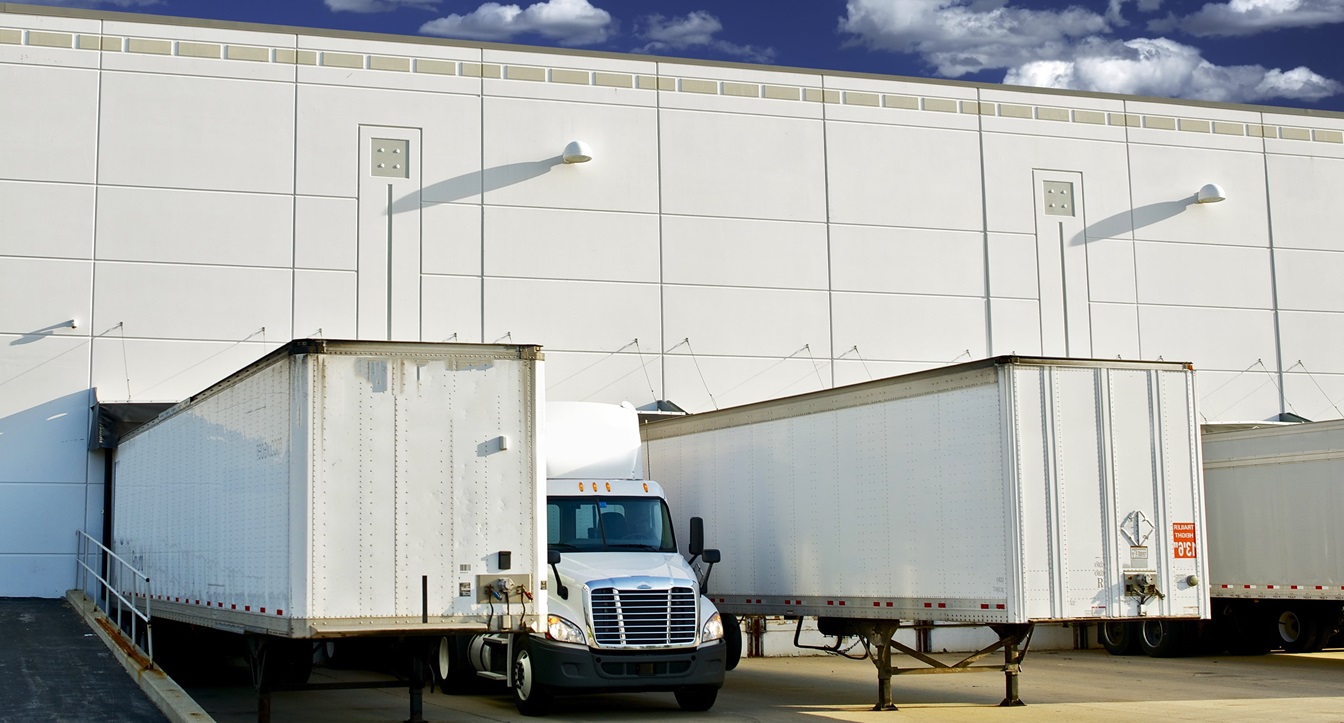10 Top Reasons for Logistics Outsourcing

Logistics outsourcing can improve customer service in many ways. A third-party logistics provider (3PL) specialising in a particular area, such as international shipping or warehousing, can provide a higher level of service than a company trying to handle internal logistics. 3PLs have access to specialised equipment, technologies and processes that enable them to work more efficiently and productively.
Logistics is an area that only some companies specialise in, but some make extensive use of it. If you use good logistics services, it can help your company's ability to sell products or provide services.
This article will explore ten key benefits of outsourcing your company's logistics.
1. Cost-effective:
Outsourcing logistics often results in cost savings for a company in several ways. A logistics company may have economies of scale, which allow it to operate more efficiently and at a lower cost than the company could on its own. The logistics provider may also have access to discounted transportation rates, which can help to reduce the overall cost of shipping goods. Additionally, outsourcing logistics can help a company to reduce its fixed costs, as it may no longer need to invest in and maintain its fleet of vehicles or warehouses. Finally, outsourcing logistics can allow a company to reduce its staffing costs, as hiring and training in-house logistics personnel may no longer be necessary.
2. Improved efficiency:
A third-party logistics provider (3PL) specialising in a particular area (such as international shipping or warehousing) may operate more efficiently than a company trying to handle logistics in-house. The 3PL may have access to specialised equipment, technology, and processes that allow them to work more efficiently. Additionally, outsourcing logistics can streamline the supply chain by enabling the company to focus on its core competencies and areas of expertise rather than being bogged down by logistics issues.
Outsourcing logistics can also help to improve communication and coordination within the supply chain, as the 3PL is typically responsible for managing the flow of goods and information between different parties. This can help to reduce errors and delays, leading to increased efficiency.
3. Access to expertise:
Outsourcing logistics allows a company to tap into the expertise and resources of a third-party logistics provider (3PL). This can be particularly beneficial for a company that does not have in-house expertise in logistics or needs more resources to manage logistics internally effectively. By outsourcing logistics, a company can access the specialised knowledge and skills of the 3PL, which can help improve the supply chain's overall efficiency and effectiveness.
Additionally, the 3PL may have access to enterprise-level systems and technologies that can help to improve the flow of goods and information within the supply chain. For example, the 3PL may have a sophisticated transportation management system to optimise routes and manage shipments in real-time. This can reduce costs and improve the overall efficiency of the supply chain.
4. Increased flexibility:

Outsourcing logistics allows the company to scale up or down more easily in response to changing market conditions. The logistics provider can quickly adjust to changes in demand or shifts in the supply chain, which can help the company to be more responsive to its customers.
Additionally, outsourcing logistics allows a company to be more flexible regarding its services. For example, a company that outsources logistics may offer a broader range of delivery options (such as same-day or next-day delivery) without investing in its own fleet of vehicles. This can be particularly beneficial for companies that must be agile to stay competitive in a rapidly changing market. Outsourcing logistics can provide a company with greater flexibility in terms of location, as the logistics provider can handle the storage and distribution of goods from multiple locations. This can be beneficial for companies operating in multiple regions or needing to reach customers in various parts of the world.
5. Improved customer service:
Logistics outsourcing can improve customer service in many ways. A third-party logistics provider (3PL) specialising in a particular area, such as international shipping or warehousing, can provide a higher level of service than a company trying to handle the service. 3PLs have access to specialised equipment, technologies and processes that enable them to work more efficiently and productively. Additionally, outsourcing logistics can help improve communication and coordination within the supply chain, leading to faster and more accurate deliveries.
The 3PL may also offer more delivery options (such as same-day or next-day delivery) and may have a customer service team to handle requests and resolve issues that may arise. All of these factors can contribute to an overall improvement in customer service.
6. Risk management:
Outsourcing logistics services can help reduce risks associated with the supply chain, as the logistics provider is often responsible for ensuring timely and accurate deliveries. Third-party logistics (3PL) providers are typically accountable for timely and accurate deliveries, which can help reduce the risk of delays or errors that can disrupt the supply chain and negatively impact the business and its customers. In addition, the 3PL may have processes to mitigate shipping risks, such as cargo insurance and emergency response plans.
Outsourcing logistics can also help reduce financial risk, as 3PLs are often responsible for any unforeseen costs that may arise, such as unexpected fees or charges. This can help protect your bottom line and allow you to focus on your core competencies instead of worrying about logistical issues.
7. Focus on core competencies:
Outsourcing logistics allows a company to free up time and resources that can be redirected towards its core business functions. This can help the company be more efficient and effective in its core areas of expertise, leading to improved competitiveness and performance.
Additionally, outsourcing logistics can allow a company to utilise its in-house staff better, as it can focus on tasks that are more closely aligned with the company's core competencies. This aspect directly contributes to employee job satisfaction and morale, which can positively impact overall business performance.
8. Scalability:

Outsourcing logistics can provide businesses with greater scalability in many ways. First, a third-party logistics provider (3PL) can often scale up or down more quickly than a company trying to handle logistics in-house. This can be advantageous in a rapidly changing market, as businesses can adapt quickly to changes in demand without investing additional resources. Additionally, outsourcing logistics can make it easier for businesses to enter new markets, as 3PLs can handle the complexities of shipping and customs in those markets. This can help the company expand its customer base and reach new parts of the world faster and more efficiently.
Outsourcing logistics can provide businesses with more location flexibility, as the 3PL can manage the storage and distribution of goods from multiple locations as well. This can significantly benefit companies that operate in various regions or need to reach customers in numerous parts of the world.
9. Global expansion:
Outsourcing logistics can make it easier for a company to expand into new markets. A third-party logistics provider (3PL) can handle the complexities of shipping and customs in the new market, reducing barriers to entry and allowing the company to focus on its core competencies.
Outsourcing logistics can provide a company with greater flexibility in terms of location, as the 3PL may be able to handle the storage and distribution of goods from multiple locations. This can benefit companies that need to reach customers in various parts of the world. Overall, outsourcing logistics can help to reduce the risks and costs associated with global expansion, making it a more attractive option for companies looking to expand their operations.
10. Increased competitiveness:
Outsourcing logistics can help increase a company's competitiveness in many ways. This can often lead to cost savings, as the logistics provider can benefit from economies of scale and gain access to reduced freight rates. This can help the company reduce costs and increase profits. Additionally, outsourcing logistics can improve supply chain efficiency and effectiveness, leading to faster delivery and higher customer satisfaction.
Outsourcing logistics can also make a business more flexible and adaptable to respond to changing market conditions. This can help enterprises to respond to customer needs faster and stay ahead of the competition. Overall, outsourcing logistics can help a business reduce costs, increase efficiency, and improve customer service, which can increase competitiveness.
Final Words
Reliable logistics companies are essential for several reasons. First and foremost, they ensure that goods are delivered on time and in good condition. This is critical for businesses that rely on the timely delivery of goods to operate effectively.

Expert Logistics, one of the top logistics companies in Melbourne, offers reliable transportation and logistics services. In addition to ensuring timely delivery, Expert Logistics also helps businesses to reduce their costs by providing efficient transportation and warehousing solutions with over 14 years of industry experience.

